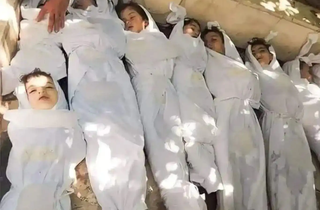James Elder, UNICEF's spokesperson, emphasized that the extensive violence and destruction inflicted by the Israeli military will not bring peace to the region's children.
Elder, currently stationed in Gaza, voiced profound concern over the diminishing hope among Gaza's residents, particularly the youth. He called for global intervention to end the humanitarian catastrophe. Elder recounted heart-wrenching stories of children who have lost their families and homes, suffering from malnutrition and psychological trauma. He underscored the urgent need for an immediate ceasefire to save children's lives and provide them with essential healthcare and education.
In an interview published on the United Nations website, Elder highlighted the abnormality of the constant fear and continuous bombardment that children in Gaza endure. He described visiting Al-Aqsa hospital, where he witnessed horrific injuries among children, including those from explosions and burns. He noted that only a few of the 36 hospitals that were operational before the conflict started are still able to provide services.
"It was actually overcrowded," Elder said, describing the scene at Al-Aqsa hospital. "There were dozens of people with terrible injuries lying on the floors and mattresses, children with terrible injuries resulting from explosions and burns."
Elder pointed out the immense risks involved in delivering aid to Gaza. "During this ongoing war for eight months, the largest number of my United Nations colleagues have been killed, more than any other conflict in the history of the United Nations," he stated, highlighting the extreme danger and logistical challenges faced by aid workers.
Elder warned about the long-term consequences of the destruction of educational institutions in Gaza, stressing the severe psychological damage inflicted on children. "The longer the war lasts, the greater the psychological damage it inflicts on children," he noted, comparing the situation to other prolonged conflicts in Yemen and Afghanistan. "We are heading into the unknown when it comes to the mental health of children."
Elder reported a troubling decline in hope among Gaza's residents, despite ongoing international appeals and resolutions. He shared a disturbing sentiment expressed by many young people: they wished for a missile to end their suffering.
"We cannot allow the world to turn its back; we cannot allow this to be normalized," Elder insisted. "There is nothing normal about this malnutrition crisis, continuous bombardment, or the atrocities I see in the hospitals. It is certainly not normal for children and their families to live in constant fear."
The UNICEF spokesperson's remarks underscore the urgent need for international action to address the severe humanitarian crisis in Gaza. The ongoing conflict's devastating impact on children highlights the critical need for a ceasefire and comprehensive humanitarian support to restore hope and stability to the region. (ILKHA)



 Güncel
Güncel
 Dünya
Dünya
 Güncel
Güncel
 Güncel
Güncel
 Güncel
Güncel
 Dünya
Dünya
 Dünya
Dünya
 Dünya
Dünya
 Güncel
Güncel
 Güncel
Güncel





